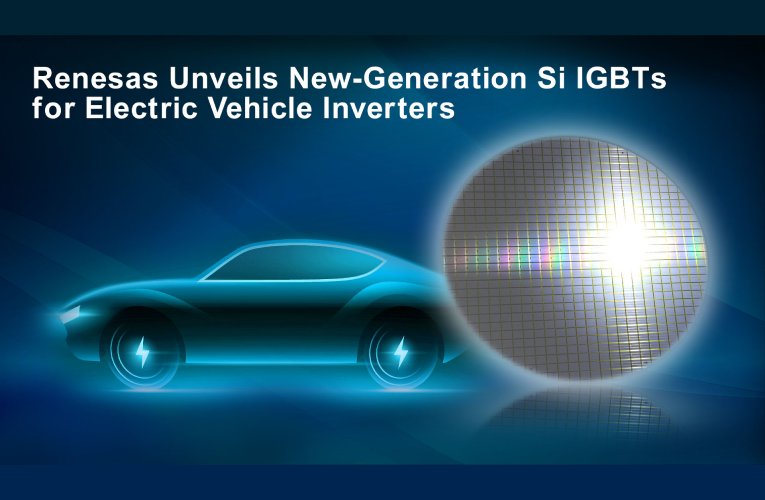
Renesas Electronics Corporation has announced the development of a new generation of Si-IGBTs which will be offered in a small footprint while providing low power losses. Aimed at next-generation electric vehicle (EVs) inverters, the new AE5-generation IGBTs significantly improve performance and safety as modules by minimizing parameter variations among the IGBTs and providing stability when operating IGBTs in parallel. Moreover, the silicon-based AE5 process for IGBTs achieves a 10% reduction in power losses compared to the current-generation AE4 products.
These new IGBTs feature Steady performance throughout the operating junction temperature (Tj) range from -40°C to 175°C and stable parallel operation by reducing parameter variations to VGE(off) to ±0.5V. These devices enable a reduction in inverter power losses, improving power efficiency by up to 6% compared to the current AE4 process at the same current density, allowing EVs to drive longer distances and use fewer batteries.
Key Features of AE5 IGBTs
- Four products targeting 400-800V inverters: 750V withstand voltage (220A and 300A) and 1200V withstand voltage (150A and 200A)
- Steady performance throughout the operating junction temperature (Tj) range from -40°C to 175°C
- Industry's highest performance level with an on-voltage Vce (saturation voltage) of 1.3V, a key value for minimizing power loss
- 10% higher current density compared to conventional products and small chip size (100mm2/300A) optimized for low power losses and high input resistance
- Stable parallel operation by reducing parameter variations to VGE(off) to ±0.5V
- Maintains reverse bias safe operating area (RBSOA) with a maximum Ic current pulse of 600A at 175°C junction temperatures, and a highly robust short circuit withstand time of 4µs at 400V.
- 50% reduction in the temperature dependence of gate resistance (Rg). This minimizes switching losses at high temperatures, spike voltage at low temperatures and short circuit withstand time, supporting high performance designs.
- Available as a bare die (wafer)
- Enables a reduction in inverter power losses, improving power efficiency by up to 6% compared to the current AE4 process at the same current density, allowing EVs to drive longer distances and use fewer batteries.

